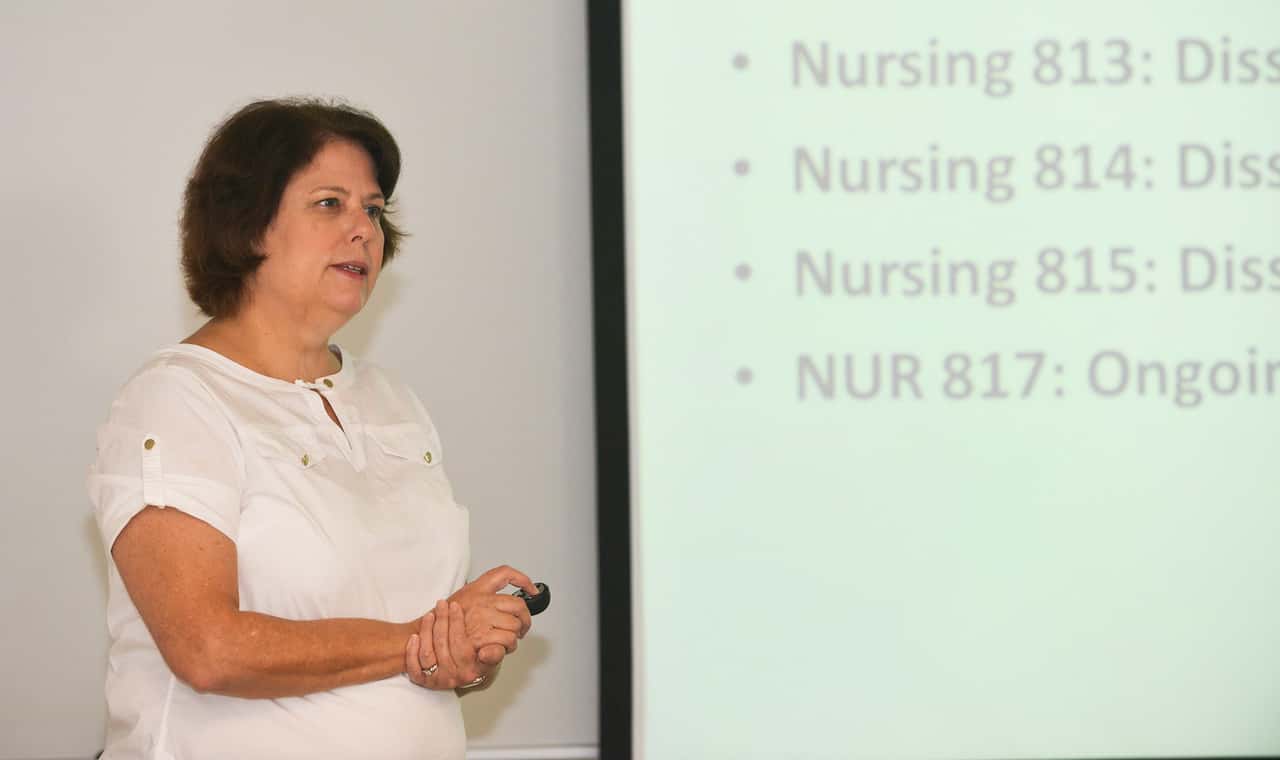A grant award recently secured by Nursing Professor Barbara Aronson will support nursing students by authorizing cancellation of a percentage of educational loans in exchange for full-time post-graduation employment as nurse faculty.
The federal funds, totaling almost $1 million, are welcome assistance, given the critical nursing educator needs in Connecticut and nationwide.
“There’s a huge nursing faculty shortage nationally,” Aronson said. “First, nurses can make more money in a clinical area. Second, faculty are aging.”
Aronson, the director of the Ed.D. program in the Department of Nursing at Southern Connecticut State University, has secured substantial grant funding over the years from the Health Resources & Services Administration (HRSA). The most recent award, $891,374 from the Nurse Faculty Loan Program (NFLP), is the largest the department has ever received and brings Aronson’s total to more than $3 million.
“The first grant I wrote was in 2012,” Aronson said. “That first year, we only got a minimal amount, but we didn’t have as many students as we do today.” (The program has since grown to about 50 students.)
The Ed.D. in Nursing Education is a collaborative program between Southern and Western Connecticut State University (WCSU). Designed for individuals with clinical expertise and a master’s degree in nursing, it is an innovative doctoral program that prepares nurses for faculty roles by focusing on the content and skills required to be effective faculty members, advance the science of nursing education, and transform the education of future nurses. Current students in the program are family, pediatric, geriatric nurse practitioners, nurse midwives and faculty who plan to teach in undergraduate, graduate, or doctoral-level programs. Students at Western will receive a share of the funds.
According to HRSA, “Aging and population growth are projected to account for the 81% of the change in demand for primary care services between 2010 and 2020.” And a Special Survey on Vacant Faculty Positions released by American Association of Critical-Care Nurses (AACN) reported that in 2018, a total of 1,715 faculty vacancies were identified in a survey of 872 nursing schools with baccalaureate and/or graduate programs across the country. Most of the vacancies (90.7 percent) were faculty positions preferring a doctoral degree.
“It is hoped that our program will have a lasting impact on the faculty shortage by preparing the next generation of nurse educators,” Aronson said. “They will fill faculty positions in Connecticut, the northeast and nationwide and will also contribute to the advancement of the science of nursing education.”
Aronson was a staff nurse for many years before she decided she wanted to teach. After earning advanced degrees in nursing education, she began working at Southern; she has worked in the Nursing Department for 20 years, has run the undergraduate program for seven years and directed the Ed.D. program since 2012.
“I have a lot of experience in nursing and nursing education,” she said. “Technology, the push for student-centered learning strategies, and COVID-19 have changed the way we teach, and we are preparing our students to meet these challenges. At Southern, nurses love the program because they interact with other students who share the same interests.”
Aronson earned her Ph.D. from the University of Massachusetts, her MSN from the University of Hartford, her BSN from Saint Joseph College, and her diploma from Hartford Hospital School of Nursing. She has more than 30 years of experience in nursing education in the acute care and academic settings.


